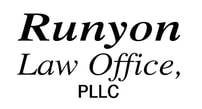LTC and TLC Considerations
What to do then? For one thing, if a couple owns their home and only one of them needs a nursing home, they can likely keep the home, its furnishings and the family car, and none of those assets will be hit with Medicaid liens. They can also keep more than $100,000 of their nest eggs, and the spouse at home can retain all his or her income from Social Security and pensions. In other words, it may be a nor'easter, but it's not hurricane Harvey.
Still, people want to do something to protect themselves, and they're often lured to risky options that get promoted as miracle drugs. They're told they can put their assets in trusts and still have those funds available to pay their personal expenses - so, voila, they'll get the nursing home financed by Medicaid without even a crack in the egg. The trouble is, it's just not that simple, and there will likely be a battle with Medicaid over the terms of the trust or about whether Medicaid can get their benefits reimbursed from the trust funds.
The problem has always been that the other option - long-term care insurance - is almost as bad, because the premiums are high, and if you never need professional nursing care, it seems like you've cracked your egg for nothing. Now, though, even the companies that sell LTC policies have recognized the drawbacks, and they've come up with hybrid policies that guaranty the return of some or all of your premiums at death if you haven't eaten them all up in payments for nursing care. I'm not an insurance expert, but there are good ones in our own backyard and they can help you decide whether these improvements in coverage are enough to tip the scales for you. Just look into the options soon rather than later, though, because the premiums increase as you get older. What a surprise!
Much of what I write about comes from actual situations I've been witnessing, and here are a couple more. If a family member needs someone to handle his or her legal and financial business or to make health care decisions, make sure to have them execute the necessary documents before a physician has declared that the window of opportunity has closed. If a person can no longer make intelligent and knowledgeable decisions, then they can't sign legal documents, and the only recourse is guardianship - an expensive and divisive process. The same goes for will or trust revisions, as I've had several family members recently say that "mom would never have wanted those [old] arrangements any longer," but she never got around to changing them.
Finally, and here's the TLC part, one of the greatest gifts you can give your family is not to leave them with a real mess once you're gone. I'm not talking now about the legal documents, because you may have been scrupulous to keep those in order. I'm referring to what, in fact, you've left behind, where to find it all, and what to do with it once the family discovers your secret hiding places. You may have a shoe box full of krugerrands or all the vintage baseball cards your mom never threw out, but where are they and what are your thoughts about what to do with them? We've even had to re-open estates when unknown assets surfaced years later in the back of a desk drawer.
Likewise, does anyone in the next generation have any idea where you came from and what you did before they came along? And do they know who your college roommate, second cousin or Army buddy was and how to contact them once you're gone? This isn't the kind of information to fill up the documents with (even though we don't actually get paid by the word), but that doesn't mean it's not just as important. If you need prompting about these and other topics you might cover, please let us know and we'll forward a form that could help.
Posted 10/12/2017 - Misc.
